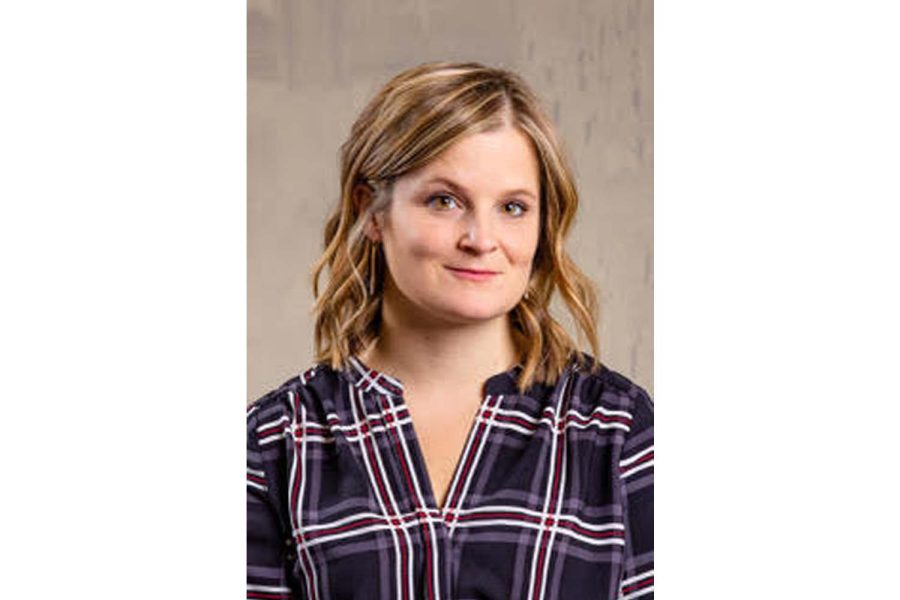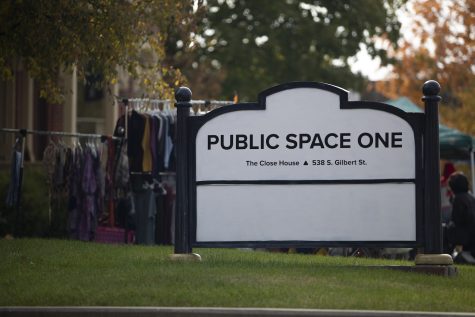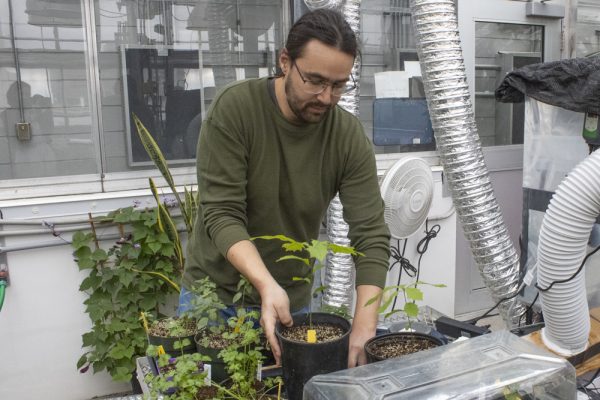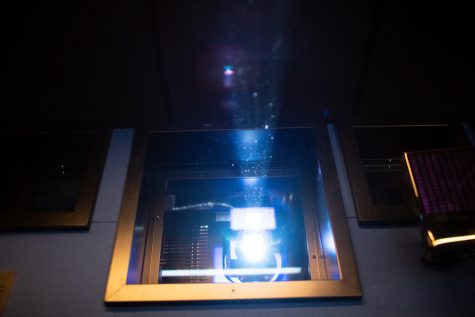Ask the Author: Amy Butcher
In her latest book Mother Trucker, award-winning author and essayist Amy Butcher discusses intimate partner violence and her trip on America’s most dangerous highway.
November 1, 2021
Amy Butcher is the director of creative writing and an associate professor of English at Ohio Wesleyan University. She earned her MFA from the University of Iowa’s Nonfiction Writing Program in 2012. She is an award-winning essayist and author. Her newest book *Mother Trucker: Finding Joy on the Loneliest Road in America* came out on Nov. 1. Mother Trucker is a story about intimate partner violence and how a friendship guided her life onto a new path. Butcher will read at Prairie Lights to launch her new book on Nov. 2.
(This article has been edited for length and clarity).
DI: What is your new book Mother Trucker about?
Butcher: Mother Trucker is a book that is predominantly set in Arctic northern Alaska. It really is two stories in one. One story is the story of the subject I profiled, and her name was Joy. She was the only female big rig driver on the James W. Dalton Highway, which is a 414 mile stretch of mostly gravel that extends north from Fairbanks, Alaska to the Arctic oil fields of Prudhoe Bay. I was curious about what it was like to be a woman in that industry, but the larger story and what the book turned into — and I didn’t expect it to turn into — was a work about intimate partner violence. I was in a relationship that was abusive. I went up there to largely profile Joy, but also to escape and get some distance from the situation that was escalating privately for me. So really, the book kind of began to be a conversation about what it means to be really strong as a woman in America.
DI: What was your writing process like for this book?
Butcher: I certainly knew that I was interested in writing about women’s issues, and I was interested in Alaska already before I found Joy. So, we did this trip together. I took a lot of notes, a lot of photographs, journaled a lot, and then I came back home and really began to work on the book. About three months later, Joy — actually, her truck — went off the shoulder of that highway and she was killed instantly. At that point, I had to think about, “what does this mean for the project?” It was difficult for a little while. I didn’t know how to move forward, or even if I should move forward. But at the same time, I felt deeply that what Joy had shared with me was information that she wanted in the book and in some ways, it became a story about keeping her legacy alive.
DI: What would you say is the number one thing you learned from this experience?
Butcher: I teach writing, and I always tell my students that you don’t choose the topic, the topic chooses you. I think that’s very true — this project began as one thing, and it turned into something very different. I think as a writer, you have to be open to the way in which projects unfold sort of organically and you have to be flexible.
DI: What was your favorite part of going ice road trucking with Joy?
Butcher: It’s the most beautiful landscape I’ve ever seen. If you get good weather going up that highway then it’s 14 to 16 hours one way. We passed all kinds of beautiful wildlife – we passed bears, moose, an arctic fox, and we saw wolves and caribou. I even remember specifically getting out and touching permafrost for the first time. But also, Joy’s presence. I had no idea when I was traveling with her that it could be the first and only time that I would get to do that.














